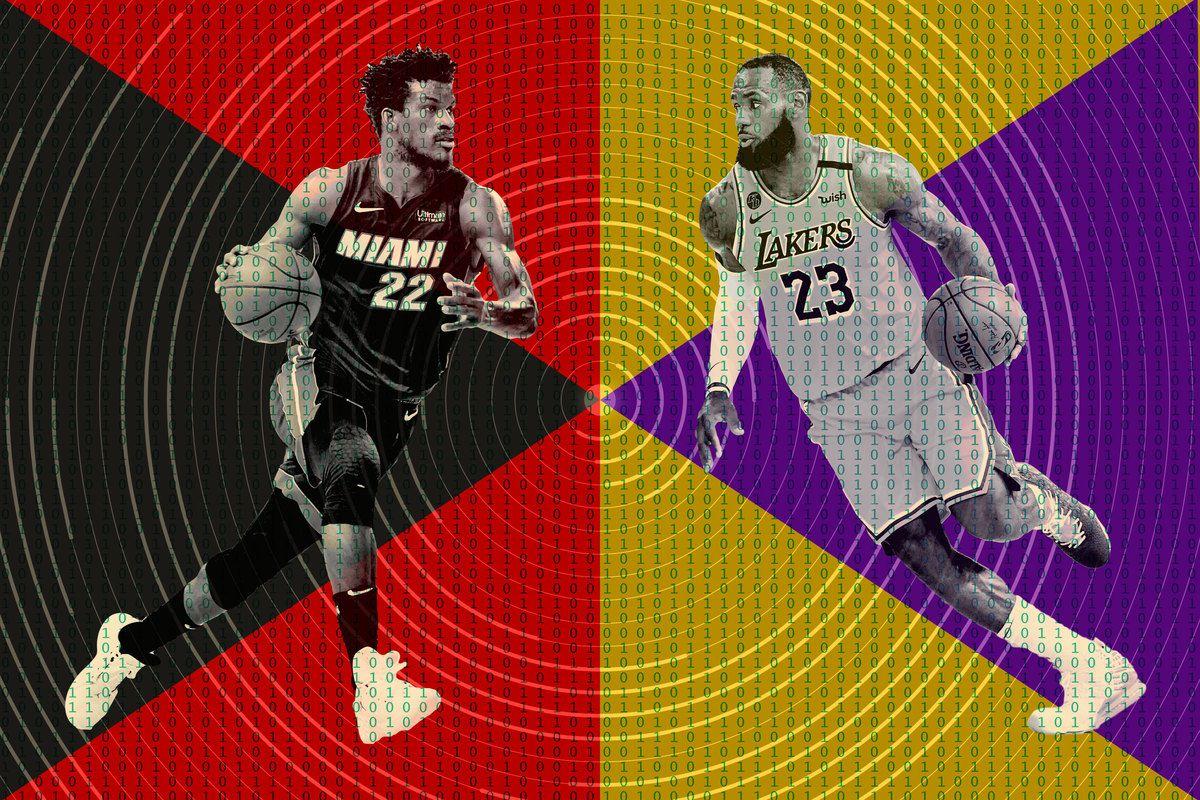Four months is a long time. So we’re getting reacquainted with the title race by looking at the nine NBA teams with at least a 1 percent chance of winning the title, according to our in-house playoff odds (a.k.a. Zach Kram), plus the 76ers, who defy all math and logic, leading up to reopening night on July 30.
The Basics
Team: Houston Rockets
Record: 40-24 (tied for fifth in Western Conference)
Numbers: 113.4 offensive rating (second in NBA), 109.9 defensive rating (16th), 3.4 net rating (seventh)
Seeding opponents (in order of schedule): Mavericks, Bucks, Trail Blazers, Lakers, Kings, Spurs, Pacers, 76ers
Last Time, on the Rockets …
James Harden led the league in points, the Rockets led the league in 3-point attempts, and the offense ranked no. 2 in the league—the team’s usual hallmarks. But this season represents a new chapter in the franchise’s story, not a repeat entry. Starting in February, the Rockets took the next step in their strategic experimentation, trading starting center Clint Capela and switching to a super-small rotation with 6-foot-5 P.J. Tucker as the nominal center.
Another new wrinkle for the Rockets this season is the presence of Russell Westbrook, who struggled early in his introduction to the Houston system but thrived more recently. Westbrook’s ascent predates the Capela trade by more than a month, as he took advantage of all the open space created by defenses’ mad scrambling around Harden. Dating back to late December, Westbrook—the worst high-volume 3-point shooter in NBA history—cut his 3-point tries by more than half and rediscovered his usual offensive numbers. Early on this season, Westbrook’s true shooting percentage placed him in the range of erratic rookies like Cam Reddish and Darius Garland; his efficiency since late December is up near Bradley Beal and LeBron James.
Russell Westbrook Season Splits
How They’ve Spent Their Quarantine
Both Harden and Westbrook arrived in Orlando late, not traveling with the rest of the team—the latter because of a positive test for COVID-19. Both players participated in pre-restart scrimmages without issue.
On a pair of lighter notes, Tucker brought 91 pairs of shoes to Orlando, presumably one for every open 3-pointer he’ll get next month with defenses keyed on Harden and Westbrook. Daryl Morey, meanwhile, played a season of an old NBA 2K title, only to lose to—who else—Golden State in the playoffs.
Seeding-Games Goal: Continue to Incorporate Robert Covington Into the Rotation
The Capela trade wasn’t solely about rethinking the center position or shedding the big man’s salary; it also brought Covington to Houston, adding another 3-and-D wing to Mike D’Antoni’s rotation. Covington played only 14 games with the Rockets before the shutdown, though, and his new team could use more time to figure out the optimal lineups at its disposal.
For instance, the five-man lineup of Harden, Westbrook, Tucker, Covington, and Danuel House Jr. has played for 164 minutes and outscored opponents by 10.7 points per 100 possessions in that time. But that same group with Eric Gordon in House’s place has shared the floor for just 45 minutes. D’Antoni began starting this five-man unit in the scrimmage period, shuttling House to the bench with Gordon joining the starters, but Gordon was hurt in Houston’s last scrimmage and is expected to miss “a few days.”
Biggest On-Court Bubble Question: Will Super-small-ball Work in a Seven-Game Series?
The Rockets’ all-small strategy brought mixed results in limited time, with high highs and low lows: They won games against the Lakers and Celtics (twice), but lost to the Knicks and Magic all in the span of a few weeks. The remaining question that cannot be answered until the playoffs is whether this extreme approach is more likely to succeed in the regular season, when it can catch teams by surprise, than the postseason, when teams gain familiarity with an opponent’s game plan.
Houston’s potential first-round opponents offer some delightful strategic possibilities. A meeting with the Nuggets and Nikola Jokic would match the diminutive Rockets defenders against the league’s premier passing big. The Rockets could also play the Jazz—whom they’ve eliminated two years in a row, playing Rudy Gobert off the floor—or the Thunder, matching Westbrook against his old team. The worst-case scenario is sliding to the no. 7 seed (which happened 22 percent of the time in my initial playoff simulations), because a Clippers frontcourt of Kawhi Leonard, Paul George, and Marcus Morris could out-small the Rockets.
Players in the Spotlight: Playoff Russell Westbrook and Playoff James Harden
Fairly or not, Westbrook’s reputation as a playoff performer has gone downhill since he played in the 2012 Finals as a 23-year-old, and especially since he last teamed with Kevin Durant in 2016, when the Thunder nearly upset the 73-win Warriors. After Durant left the Thunder, Westbrook lost three first-round series in a row, going just 4-12 in individual games. Across those postseasons, Westbrook averaged 29.8 points, 10.9 rebounds, and 9.5 assists per game—but he shot just 38 percent from the field and his team was outscored while he was on the court.
Westbrook’s playoff failures in Oklahoma City encapsulated the entire Westbrook experience—phenomenal counting stats but less team success, and then plenty of arguments about who to blame for that limited success. In his final game in OKC, Westbrook nabbed a triple-double but shot just 11-for-31, missing his final attempt in a tie game before Damian Lillard beat the buzzer and waved the Thunder into oblivion.
Backcourt partner Harden has just as spotty a playoff reputation. Like Westbrook, he is a prolific playoff scorer, but a number of ill-timed stinkers—most prominently a 10-point showing in a 39-point elimination game loss to a Kawhi-less Spurs team in 2017—coupled with his inability to lead the Rockets to the Finals overshadow his broader individual numbers. Last season, Harden averaged 35 points per game against the Warriors, but Houston couldn’t advance even with Durant hurt.
Neither former Thunder youngster has reached the Finals since they last teamed up. That streak probably won’t end this year. But they’re no longer favorites, so maybe they can prove their postseason bona fides by springing an upset, now that they’re back together in the same backcourt.
On a Scale From Wizards to 10, Where 10 Is the Best Shot at a Title, What Are the Rockets’ Odds of Winning the 2020 Title?
The Rockets aren’t likely to beat either L.A. team, but they have more variance than any other NBA team outside maybe the 76ers; they could lose in the first round or catch fire for a few weeks and silence all their doubters. So let’s give them a 3 for this question—a number befitting the team most reliant on 3s.

